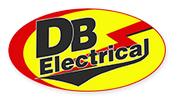The electrical system in vehicles is dependent on the alternator, which generates the electricity to charge the battery and power all electrical components. When the alternator fails, the components that depend on electrical power may also falter or fail themselves. Stock alternators that come with vehicles will usually work just fine, but there are times that something more powerful is needed. That’s when a high-output alternator is recommended.
Alternators are made to generate a certain amount of amperage. High output alternators generate more amperage than do typical stock alternators. All electrical components will work just fine as long as their collective demand for electricity does not exceed the capacity of the alternator to generate current. When demand exceeds the alternator’s capacity, that’s when problems can occur and the need for a more powerful high output alternator comes into play.
In a way, how a vehicle’s electrical system works resembles a family picnic. Some components will draw more electrical current than others, just like people with heartier appetites will eat more than others. As long as there is enough current to power all electrical components, everything works fine. You’ll see the same thing at the picnic with everyone going home happy if there was enough food. It’s when there’s a shortage that problems occur.
A common question is whether the higher amperage of a high-output alternator could cause any damage with the added power. The answer to that is “no,” and the picnic analogy works here as well. If there is more amperage that’s needed or too much food, it simply goes unused, but it causes no other problems.
When is a high-output alternator advisable? Here are 5 times you might consider it:
- High-end audio systems. If you’re installing a booming audio system with powerful amplifiers and subwoofers, you’ll need a high-output alternator. These earth-shaking audio systems require a lot of electrical power.
- Off-roading vehicles: If your vehicle is designed to leave the pavement and find its own path, chances are you may need a high-output alternator to power auxiliary lights and accessories.
- Utility trucks: Vehicles that do strenuous work like snowplowing or towing generally require alternators that produce higher amperage.
- Performance issues: If your electrical accessories are not performing like they should, moving up to a high output alternator may be necessary. Things like flickering or dimming lights could be a sign you need more amperage.
- Frequent battery failures: If your battery fails more often than it should, your alternator may not be recharging it sufficiently. In that case, higher amperage may be necessary.
There’s no doubt that a high output alternator isn’t for everyone, but it is a solution for vehicles that need the extra power. High output alternators can keep the bass from the audio system booming and the super-bright lights fully illuminated.
Related Articles
What Makes Marine Starters and Alternators Different
Top Indicators Your Car Alternator Needs Replacement
5 Warning Signs That Your Alternator Could Soon Fail


